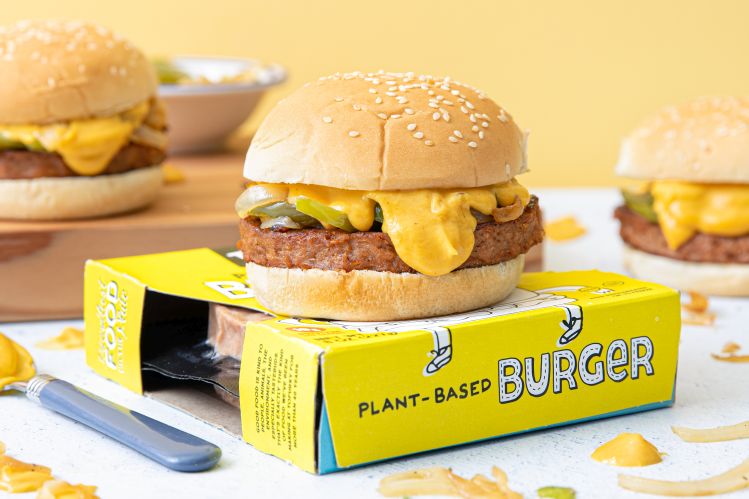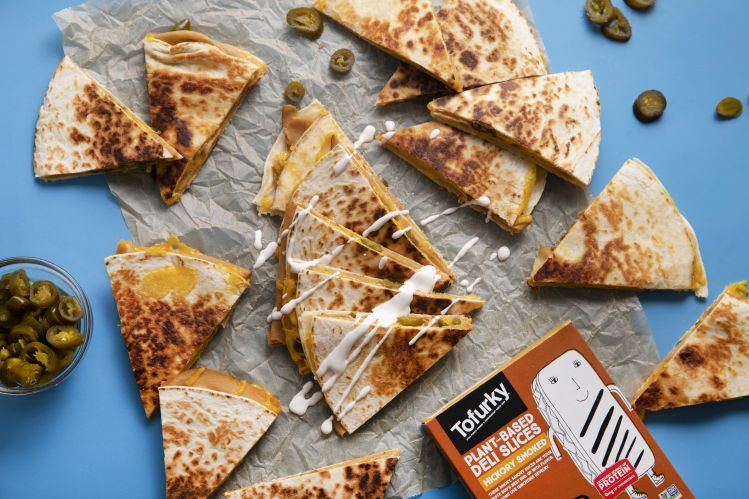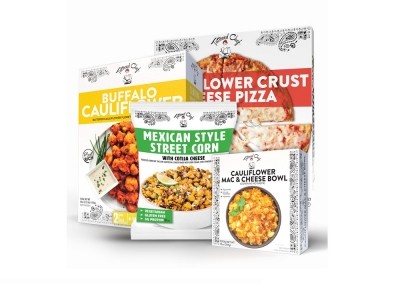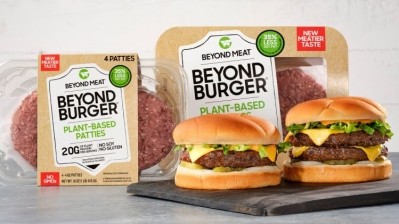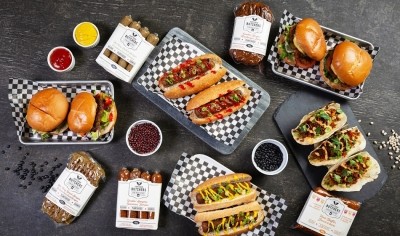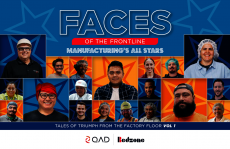Tofurky CEO on double-digit growth, fighting state labeling laws, and fat in plant-based meat: ‘There’s a juiciness problem…’

“We had double-digit growth last year, 22%, and within that some real bright spots, like our ham was 600% up over the previous year,” Tofurky CEO Jaime Athos told FoodNavigator-USA.
“But it feels really lonely to be an independent company at this point. We just saw the acquisition of [Vegenaise and dairy-free cheese maker] Follow Your Heart [after decades blazing an independent trail, co-founder Bob Goldberg finally sold to Danone last month]. I love those guys, they are personal friends of mine and I wish them all the best, but there's nobody else that’s been doing this as for as long as we have, or on the scale that we’re at right now, who hasn’t been acquired.
“We’re still 100% family owned, so what's Tofurky’s place in this kind of business ecosystem? And how do we compete when there are huge multinational CPGs that are fighting for space in the same categories that we're in?”
‘We get a lot of inquiries…’
So has Tofurky – launched in the mid-90s by Turtle Island Foods (founded in the early ‘80s by Athos’ stepfather Seth Tibbott) - been wooed by larger suitors over the years, and is Athos entertaining offers?

“We get a lot of inquiries,” Athos – who describes himself as a ‘bit of a reluctant capitalist’ - told FoodNavigator-USA.
Most of them, however, are “not compelling,” he says. “A lot of people just sense that there's a huge profit opportunity in plant-based right now and they want to get a piece of that. But those are not the right kind of partners for us.”
More integrated merchandising
With a quirky brand and a broad portfolio spanning plant-based deli slices (a market in which it is the clear leader with a 70% share), grounds, chick’n, burgers, sausages, roasts, pockets, tempeh, and a new line of plant-based shredded cheeses and desserts under the Moocho brand (just launched at H.E.B and performing well), Tofurky has decades of experience talking to consumers about meat alternatives.
However, the arrival of Silicon Valley-backed players as Beyond Meat and Impossible Foods – who were clear from the outset that their addressable market was meat, not ‘meat alternatives’ – has broadened everyone’s horizons about the potential opportunity here, and raised the bar for everyone from a technical/formulation perspective, said Athos.
Meanwhile, the nomenclature shift from vegan/vegetarian to ‘plant-based’ has also changed the conversation and the addressable market, he said.
Thanks to the arrival of brands such as Beyond Meat in the conventional meat case, meanwhile, consumers are also seeing plant-based meat differently, he said. “We’ve seen that if you put them adjacent to real animal counterparts, you draw new eyes and new consumers to the category, and definitely retailers are taking note, so there will be more integrated merchandising.
“I'm excited by the prospect of capturing potential consumers that haven't heard about plant-based or don't go to those specialized parts of the store, so hopefully if they see these products next to [regular meat/dairy], curiosity will get the better of them and we’ll have more new plant-based consumers.”
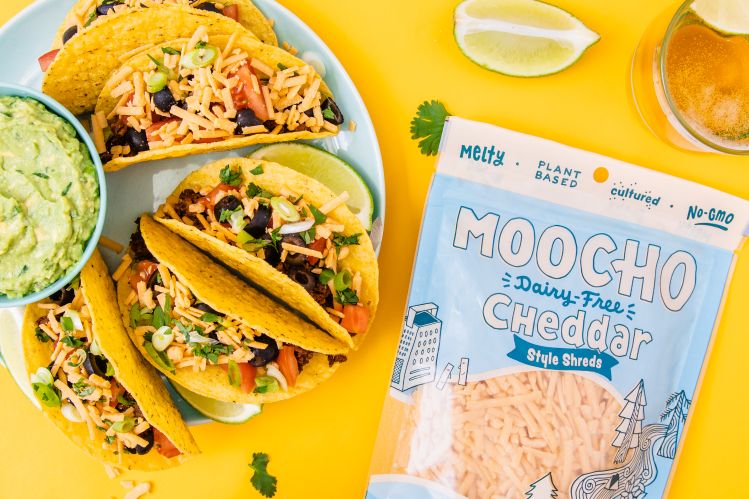
Plant-based meat, the next generation
When it comes to product formulation, Tofurky – which has historically relied on soy and wheat as its go-to proteins - is exploring a broader toolbox of ingredients, said Athos, who is also intrigued by some of the new microbial ingredients that are not deploying genetic engineering.
“You're going to see more variety out of Tofurky in the future, and we’re definitely diversifying the partnerships we have with ingredient companies. Some of these new technologies are exciting; there are some really cool mycelium types of technologies that are emerging right now, and algae based technologies that would also fit within Tofurky’s natural brand positioning.”
‘Everybody wants these products to be juicier and more decadent, fattier…’
On the formulation front, every segment of the market has peculiar challenges, he said, with melt and stretch the biggest issue in plant-based cheese, and juiciness one of the biggest challenges in plant-based meat.
“In plant-based meat, we all know there's a juiciness problem. You want to find those things that either melt like fat and mimic that fatty mouthfeel, or that bind the actual fat that you have in there and release them in a way that is similar to real animal fats.”
‘I don't think we can just keep throwing coconut oil at the problem’
He added: “Everybody wants these products to be juicier and more decadent, fattier, but at the same time, people aren't necessarily willing to give up on their nutritional ambitions. So how can we get all of those flavors and functionality attributes and mouthfeel and do it in a way that's more healthy for people?
“I don't think that we can just keep throwing coconut oil [which is high in saturated fat and has a distinctive taste] at the problem. A lot of people are motivated by their personal health; that's why they're going to plant-based products in the first place, but once they kind of do the math and realize, ‘Oh, am I really better off?’
“I mean, arguably yes they are [better off with plant-based saturated fat than animal-based]. But it's a harder argument to make if we're not necessarily making healthier products.”
Citing Beyond Meat’s decision to launch a ‘leaner’ burger this spring, and CEO Ethan Brown’s observation that, ‘When people grab a plant-based burger, they assume it's going to be healthier,' he said, “We seeing some segmentation in terms of how brands are positioning themselves. But the primary goal is to make tasty food; people are not going to maintain these dietary choices if they feel deprived.”
‘We don't have a plant-based meat tree, and consumers understand that, so that necessarily entails ingredients statements longer than one item’
As for clean labels, he said, another point of debate in the industry as brands seek to find points of differentiation (Lightlife’s controversial recent marketing campaign a case in point), they are important to shoppers, but consumers are also realists.
“You can’t always achieve the five ingredient, ingredient statement. That's just not feasible for us and you know of course the animal industry says, ‘Well we just have one ingredient, and isn't that reassuring?’ Well yeah that's fine, but we don't have a plant-based meat tree, and consumers understand that we've got to build meat out of constituent elements and that will necessarily entail ingredient statements longer than one item.”
‘Methylcellulose is a cornerstone functional ingredient for a lot of plant-based meat products’
That said, work is progressing to replace certain hard-to-pronounce ingredients such as methylcellulose, which is made from plants, but is not something you’ll find in Grandma’s kitchen, he said.
“Methylcellulose is a kind of a cornerstone functional ingredient for a lot of plant-based meat products, but there are different versions that are more highly functional and can be used at lower inclusion rates. There are also things that allow you to either remove or reduce it; less-processed things, things like some gums or konjac flour.”
Future of plant-based: ‘We're going to start to see consumers that are less and less anchored to their previous experiences with animal protein’
So what's next for the meat and dairy alternatives market? And is the trend towards reverse engineering animal products, molecule by molecule, to ever more precisely mimic their taste and texture, the way things are going?
There’s room in the market for multiple approaches, he said, and while right now, the benchmark is traditional meat and dairy products, in future, things may change: “We're going to start to see consumers that are less and less anchored to their previous experiences with animal protein and animal products and more just able to choose what they like.
“It's not like the cow evolved to conform to our palate; our palate evolved to the available proteins. So as protein sources become more and more diverse, I think we’ll see an evolution in consumer preferences, possibly away from this kind of animal-centric model that we have right now.”
Labeling: ‘Why should consumers have to navigate a confusing new nomenclature that we’d all have to invent?’
When it comes to labeling conventions in meat and dairy alternatives, as a charter member of the Plant Based Foods Association, Tofurky has been a high-profile advocate for the industry, serving as a plaintiff on lawsuits challenging state laws attempting to restrict the use of terms such as ‘milk’ and ‘meat’ on food labels.
While this sometimes seems like a complex issue, at base, it’s actually pretty simple, says Athos. Most Americans have grown up with an animal-centric diet, and meat and dairy product terms therefore serve as a reference points for consumers; ‘milk’ is something you add to cereal, or coffee; cheese is something you put in a grilled cheese sandwich or on a pizza; a burger is great for a cookout, and so on.
Provided that brands use clear qualifying language such as ‘plant-based’ or ‘vegan’ or ‘dairy-free,’ he said, they are meeting existing federal food laws, which already require that labels are truthful and not misleading: “Why should consumers have to navigate a confusing new nomenclature that we’d all have to invent?”
